How to Get a Good Night’s Sleep with New Ear Piercings
Having your ears pierced can be a thrilling experience. However, sleeping with painful new piercings might be difficult on the first few nights. Tossing and turning all night isn’t fun when your ears hurt. So, how can you get some zzz’s without bothering your new piercings?

Is it safe to wear earrings while sleeping?
Your piercer will most likely advise you to put earrings in your new piercings 24 hours a day for the first 4-6 months of recovery. Sleeping with earrings in keeps the holes from closing up. But, is it safe? The short answer is yes, as long as you take certain safeguards.
Wearing the starting studs that your piercer inserted can help protect your wounds while you sleep. The backings are meant to have some slack so that if you grab them, there is enough wriggle room to avoid tearing. Avoid wearing dangly earrings to bed since they may get caught on the blanket.
The key is to discover ways to be comfortable while avoiding placing pressure on the piercing. Sleeping on them incorrectly can result in complications such as:
- Irritation bumps
- Prolonged bleeding
- Bacterial infection
To avoid these issues, you will need to modify your sleeping position and bedding.
What could happen?
Picture this: you finally fall asleep, then turn over and squish one of your painful new piercings. Ouch! That is enough to startle you awake. Even if you don’t wake up, the continuous pressure and friction could:
- Rubbing off scabs causes bleeding.
- Introduce germs into an open wound.
- Lead to irritation bumps (from the trauma)
- Delay healing
When can I sleep on my side after new piercings?
Sleeping on your side causes a lot of pressure on your ear piercings. It is better to sleep on your back until they have had time to recover. Below are some generic timelines:
- Earlobe piercings: Wait around one month.
- cartilage piercings: Wait 3–4 months.
- Industrial piercings: Wait at least six months.
If you can’t avoid side sleeping, consider putting a thick towel, small pillow, or travel neck pillow behind your ear to help cushion it. However, during the early healing period, resting on your back is safer.
How to sleep with new piercings on both ears?
Getting both ears pierced poses an extra challenge – you can’t sleep on either side! There are a few options to get comfortable:
Clean the piercings thoroughly
Before going to bed, it’s important to thoroughly clean your new piercings. This helps prevent infection and ensures the piercing holes don’t get clogged overnight. Carefully clean the front and back of each pierced ear with a saline solution or other cleaner recommended by your piercer. Avoid harsh soaps, chemicals, or alcohol that can irritate the area. Gently pat dry with a clean paper towel once done.
Use a travel pillow
Sleeping on a regular pillow can put uncomfortable pressure on new ear piercings. A U-shaped travel pillow helps alleviate this issue. Place the pillow on your bed so the open hole in the middle goes around the back of your neck. Lay your head down with an ear in the open space in the middle, keeping it free of any contact or pressure.
Try side sleeping
Sleeping on your side may be more comfortable than sleeping on your back or stomach after a new ear piercing. Choose the side that doesn’t have the new piercing so you don’t put pressure on the tender area. If both ears are pierced, sleep on your back using the travel pillow method.
Take pain medication
Over-the-counter pain relievers like ibuprofen or acetaminophen can help reduce soreness and discomfort from new piercings at bedtime. Always follow dosing directions and don’t exceed the recommended amounts. Check with your pharmacist about any medication interactions if you take other prescription drugs.
Apply a cold compress
A small covered ice pack or cold compress applied to the pierced ear before bed can help minimize swelling, inflammation, and throbbing. Make sure to wrap the ice or cold pack in a paper towel or cloth. Don’t apply anything frozen directly on the skin. Leave the compress on for 10-15 minutes to reduce irritation.
Keep hair pulled back
Let your pierced ears breathe at night by keeping your hair up and off your shoulders. Put your hair in a loose bun or ponytail if it’s long. If you have bangs, use bobby pins or hair clips to keep them swept back so hair doesn’t get caught on new earrings while you sleep.
Protect piercings with bandages
Cover new piercings with small adhesive bandages or gauze before going to bed. This keeps the areas clean and protected from irritation overnight. Just make sure bandages aren’t tightly wrapped so they don’t put pressure on piercings. Leave some room around earrings so skin can breathe.
Adjust your sleeping position
Try elevating your head slightly while sleeping by using an extra pillow or two. Keeping your head a bit upright helps reduce throbbing and swelling. Don’t use too many pillows though, as this can strain your neck. Finding the right pillow height is key.
Piercing type and what position you should sleep in
When deciding how to sleep best, it’s important to consider where on your ear the piercing is located.
- Earlobes: Sleep on your back with no strain on your earlobes.
- Cartilage (helix, daith, tragus): Avoid sleeping on the side with the new piercing. Use a travel pillow for support.
- Industrial: Sleep on your back instead of both sides. Travel pillows are essential.
Bony areas of the ear and cartilage piercings take longer to heal. Be extra diligent about your sleeping position with these.
When can I sleep without earrings?
It’s tempting to take out painful earrings at bedtime for relief. However, the hole can close up if you stop wearing jewelry too soon. Follow these general timescales while leaving earrings out for extended periods of time:
- Earlobes: 6 weeks
- Cartilage: 3–4 months.
- Industrial: at least six months.
Once healed, you can leave your earrings out at night. However, wearing and taking off jewelry during the first few months slows healing. Leaving earrings in 24/7 in the early stages is recommended.
How do I protect my newly pierced ears?
A few tips will help keep fresh piercings secure while you sleep:
- Secure lengthy hair with a loose scrunchie away from your ears.
- Before going to bed, clean your piercings carefully with an unscented antimicrobial soap.
- Apply a saline spray or solution to damp wounds to avoid crusting.
- Discuss travel pillow alternatives with your piercer; some feature a hole in the centre for ear relief.
- Use a satin or silk pillowcase. Unlike cotton, the slick fabric does not tug on piercings.
- To avoid introducing bacteria while healing, clean your bedding frequently.
What should I avoid after ear piercing?
Be gentle with new piercings to aid the healing process:
- Avoid submerging in lakes, pools, or extended baths, as this can introduce pollutants into pierced holes.
- For at least 4-6 weeks, avoid wearing headphones, headgear, and doing jaw exercises.
- Say no to playing or fiddling with earrings until piercings are fully integrated.
- Avoid applying hair products, cosmetics, or oils near the piercing.
- Aim to not sleep directly on them until cleared by your piercer at follow up.
How can I make my ear piercing heal faster?
Patience is essential for successfully healing a piercing. Still, you can encourage quicker healing by:
- Rinse your piercings twice day with sterile saline spray to keep them as clean as possible.
- Wearing appropriate jewelry can help prevent irritation.
- Avoid touching as much as possible, and never twist or turn studs.
- Load up on vitamins C and E in your diet for antioxidant support and healing skin.
- Taking OTC pain relievers as needed.
- Maintaining health through food, exercise, sleep, and minimizing alcohol consumption.
- Use a travel or silk pillowcase and sleep on your back to reduce contact and pressure.
When in doubt, consult your piercer
If you try these tips but still can’t get comfortable enough to sleep, contact your piercer. They may suggest using larger starter earrings or a different aftercare approach that could help. Don’t take out new piercings unless a professional advises it. Follow your piercer’s guidance for sleeping and aftercare.
With some preparation and TLC, you can get the rest you need after getting new ear piercings. Pay attention to cleaning, comfort, and protection so you wake up feeling refreshed. Sweet dreams!
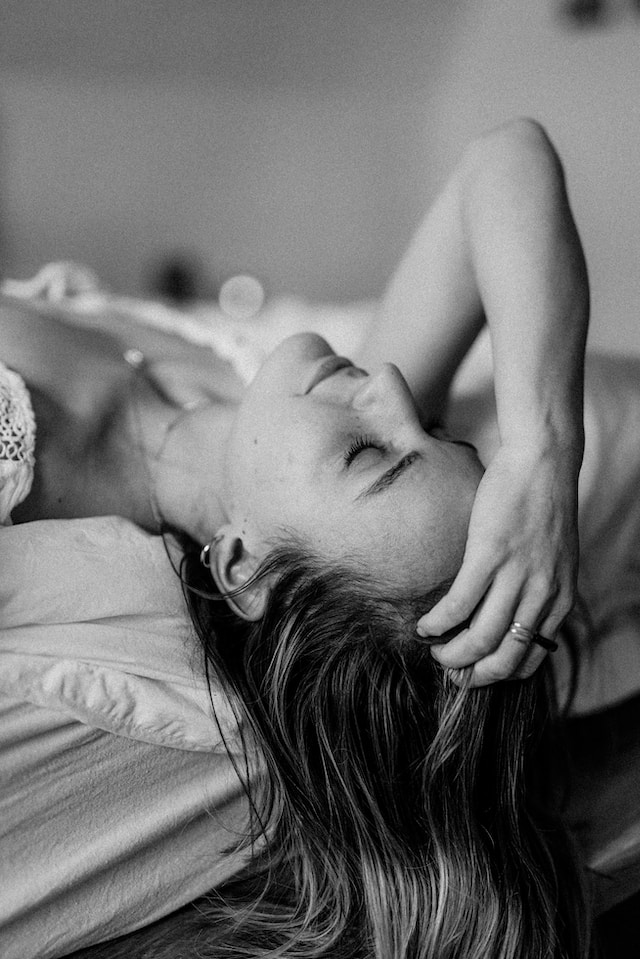
FAQs about Sleeping with New Ear Piercings
Do: Try not to sleep on the same side of the piercing. This may seem like common sense, but it’s worth reiterating. Sleeping on the same side as your new piercing can put pressure on the piercing, and cause discomfort or pain.
While we don’t recommend wearing any earrings to bed, the safest types to wear are generally the smallest ones. Studs are usually chosen for new piercings as they will be least likely to cause pain or irritation when laying on them.
As always, we’ll leave you with the simple summary: You can leave your newly pierced earrings out overnight when your ears are completely healed. This could be anywhere between 6 weeks and 3 months, depending on how quick your skin can heal.
Sleeping on your healing piercing, especially ear piercings, can cause it to heal angled and crooked. The pressure from laying on it causes the jewelry to become tilted, and VERY irritated. This will do all of what not downsizing your piercing will do. It’s the same thing.
The primary purpose of an ear piercing pillow is to prevent unnecessary pressure, friction, and movement on the freshly pierced ear, especially during sleep. This can help reduce the risk of pain, swelling, and complications while promoting a more comfortable healing experience.
Earrings for non pierced ears:
-
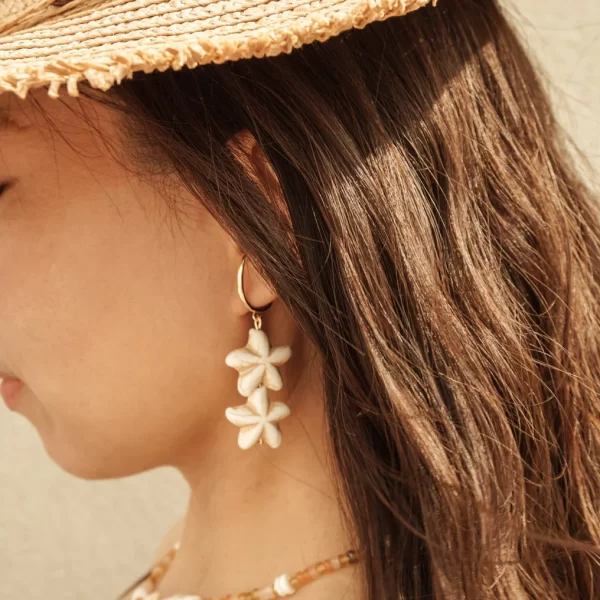
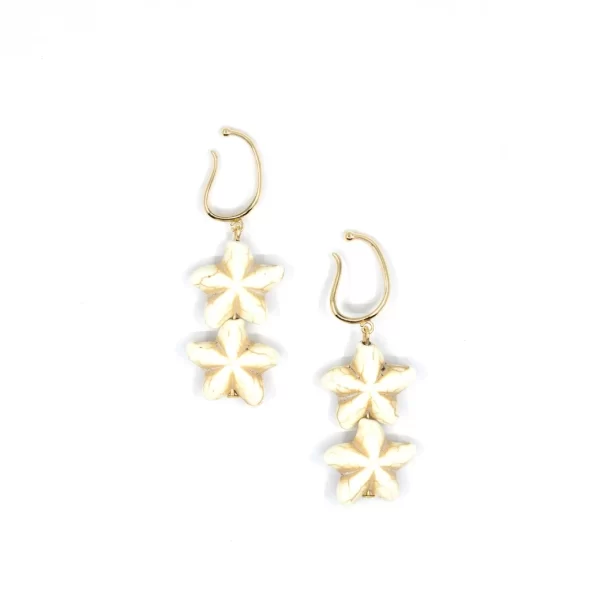 Product on saleSun-Kissed Beach Ear Cuffs$25.20
Product on saleSun-Kissed Beach Ear Cuffs$25.20 -
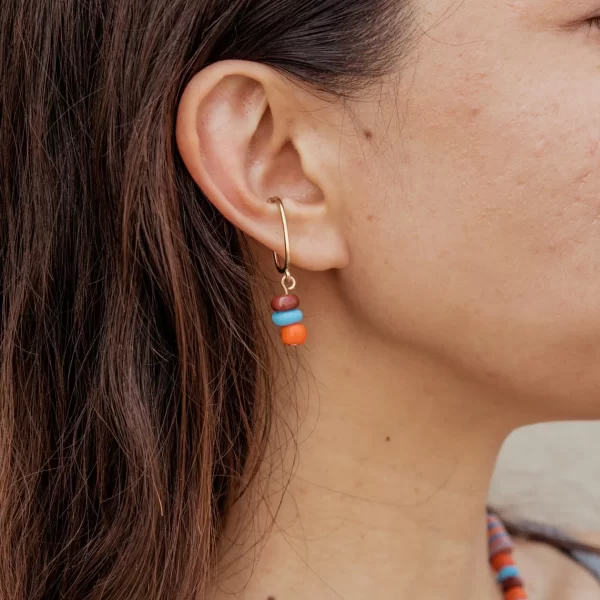
 Product on saleMosaic Madness Ear Cuffs$23.20
Product on saleMosaic Madness Ear Cuffs$23.20 -
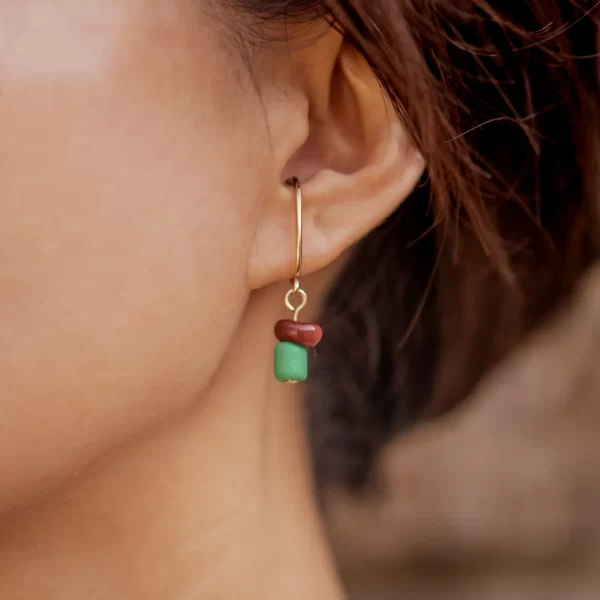
 Product on salePalm Tree Ear Cuffs$20.30
Product on salePalm Tree Ear Cuffs$20.30 -
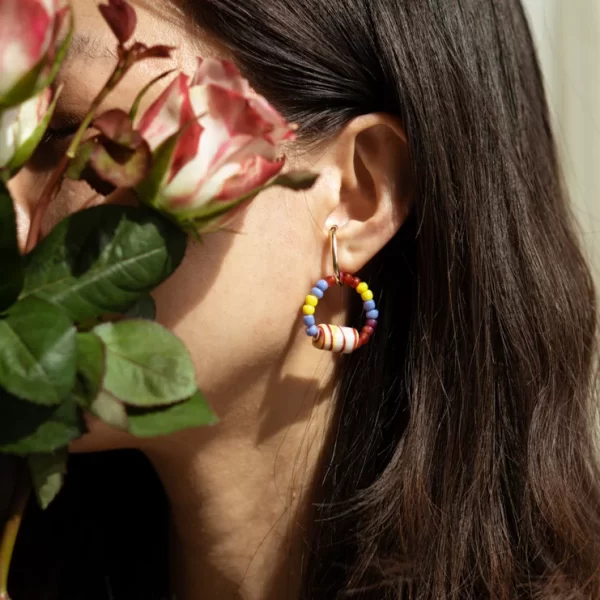
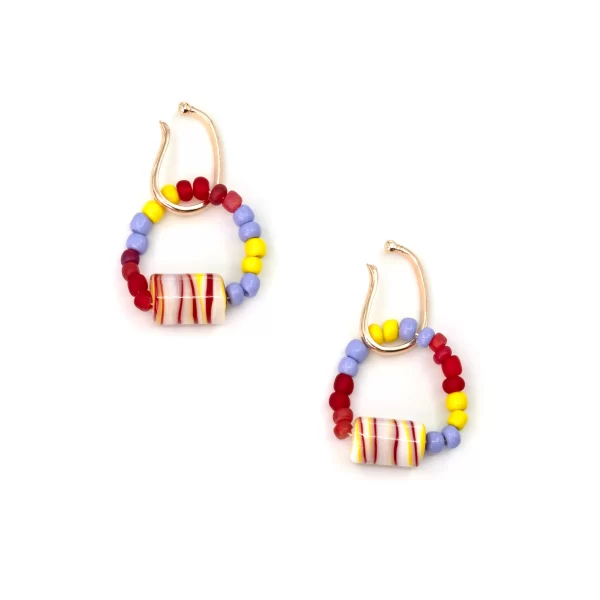 Product on saleTropical Taffy Ear Cuffs$22.40
Product on saleTropical Taffy Ear Cuffs$22.40 -
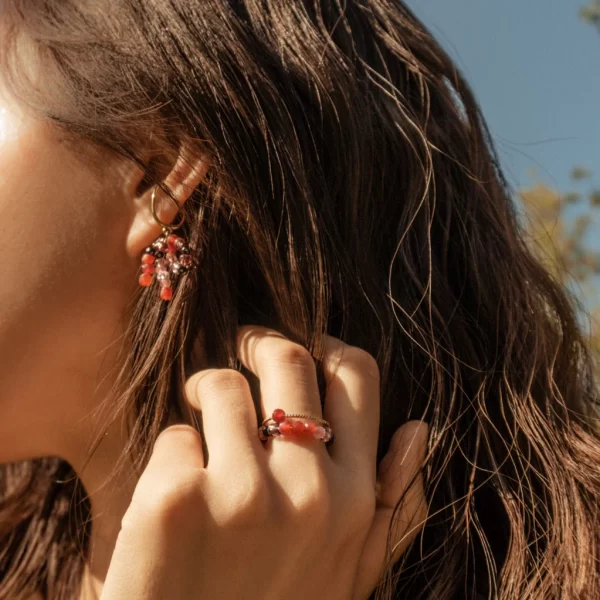
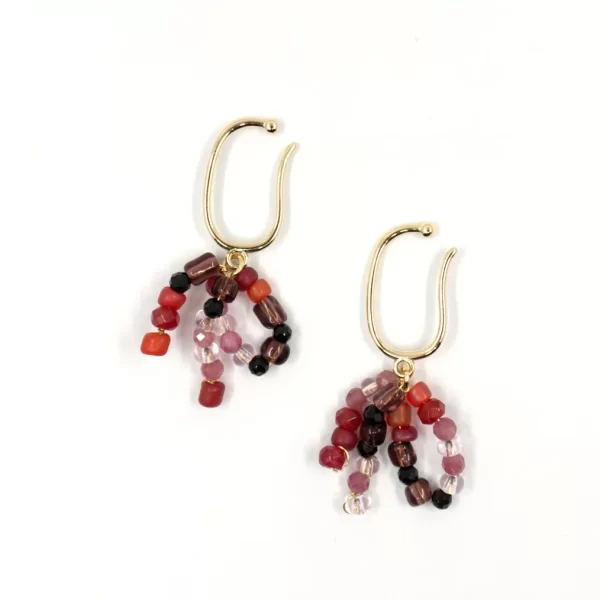 Product on saleWild Berry Ear Cuffs$18.00
Product on saleWild Berry Ear Cuffs$18.00 -
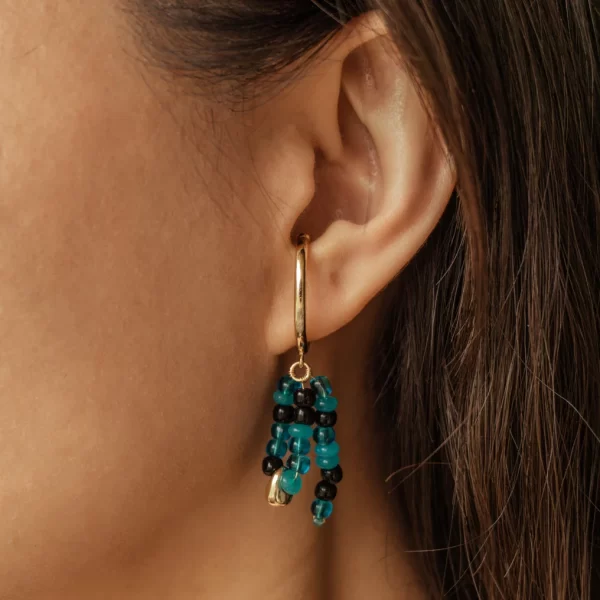
 Product on salePool Party Ear Cuffs$28.80
Product on salePool Party Ear Cuffs$28.80 -
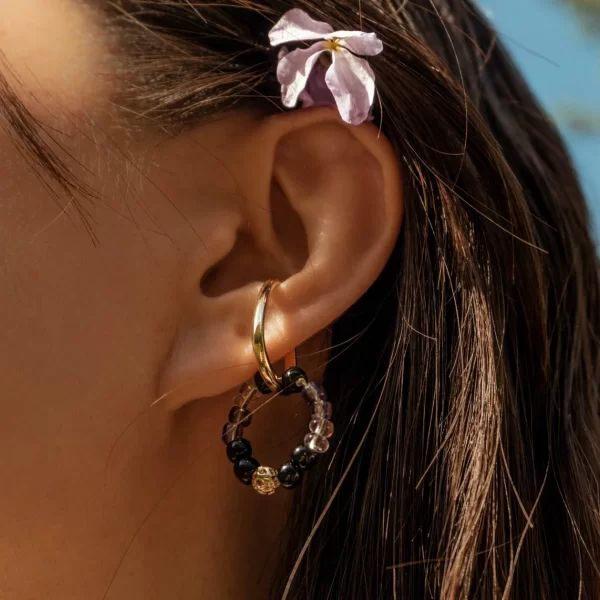
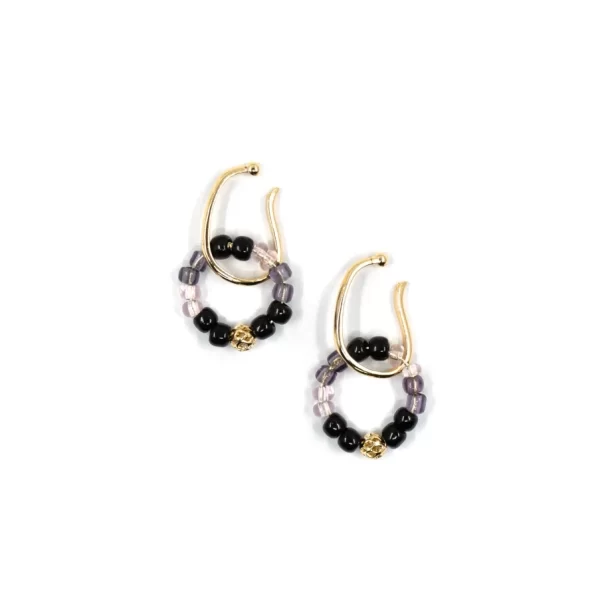 Product on sale
Product on sale -
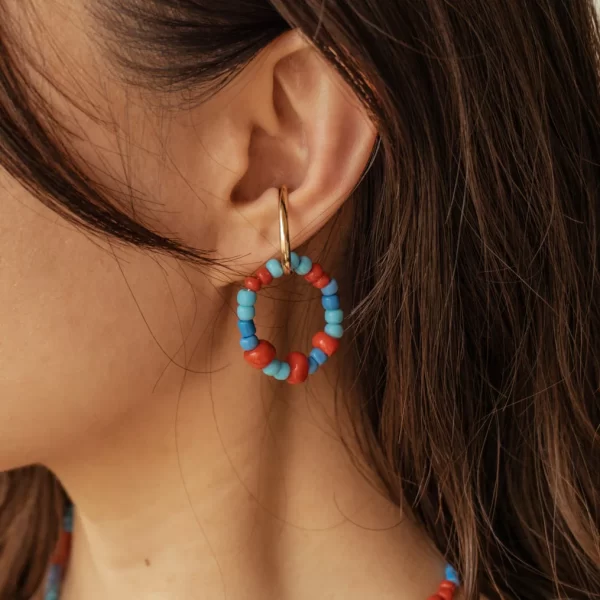
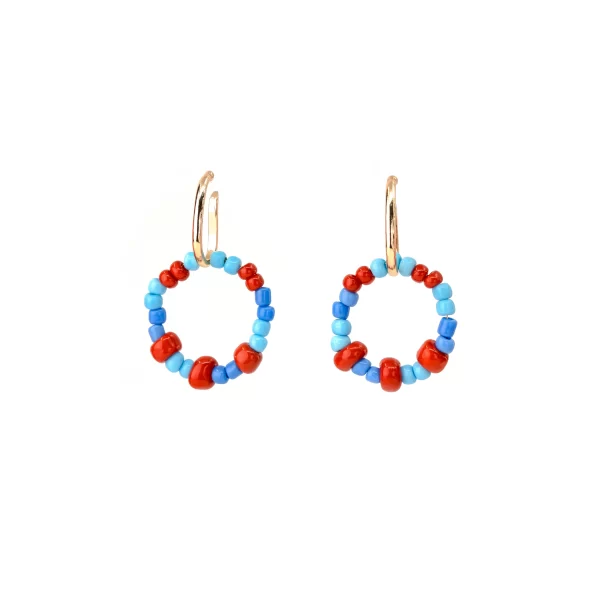 Product on saleBateau à Voile Ear Cuffs$20.30
Product on saleBateau à Voile Ear Cuffs$20.30 -
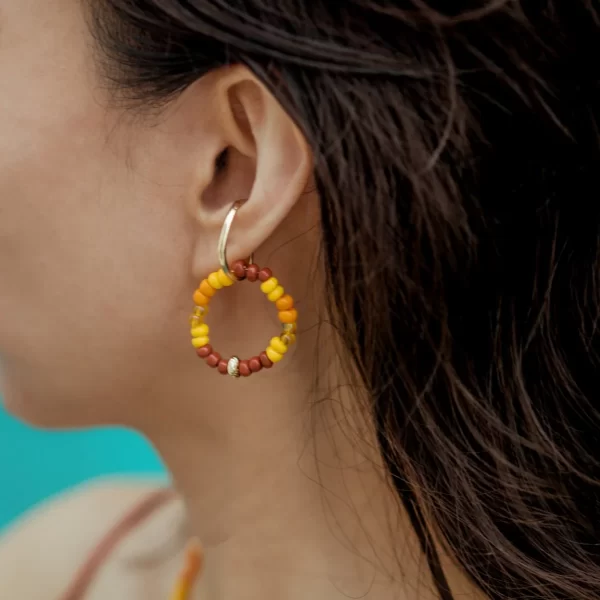
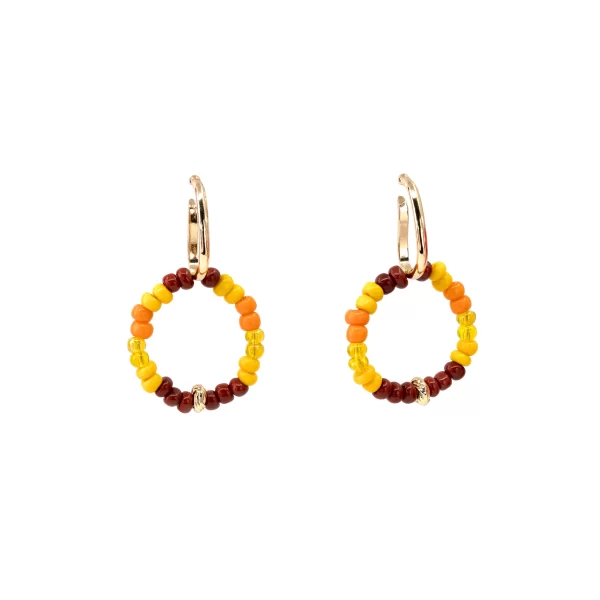 Product on saleSunset Ear Cuffs$20.30
Product on saleSunset Ear Cuffs$20.30 -
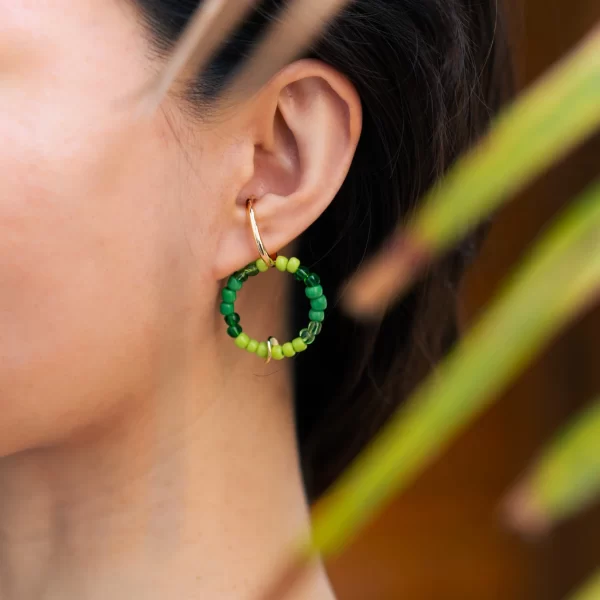
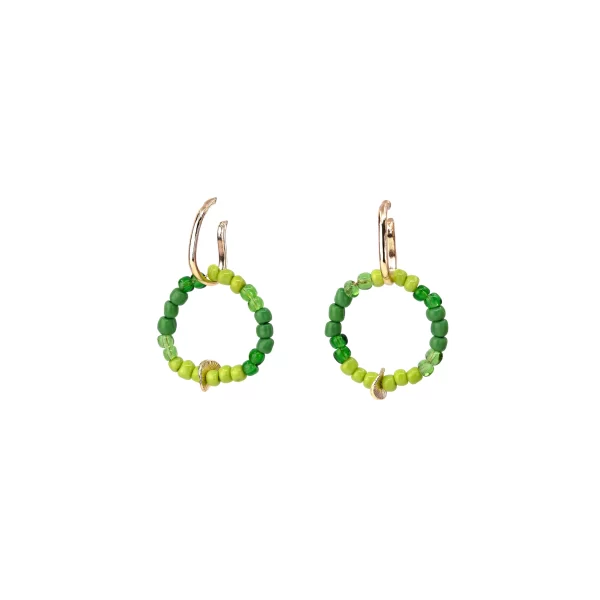 Product on saleRainforest Ear Cuffs$20.30
Product on saleRainforest Ear Cuffs$20.30 -
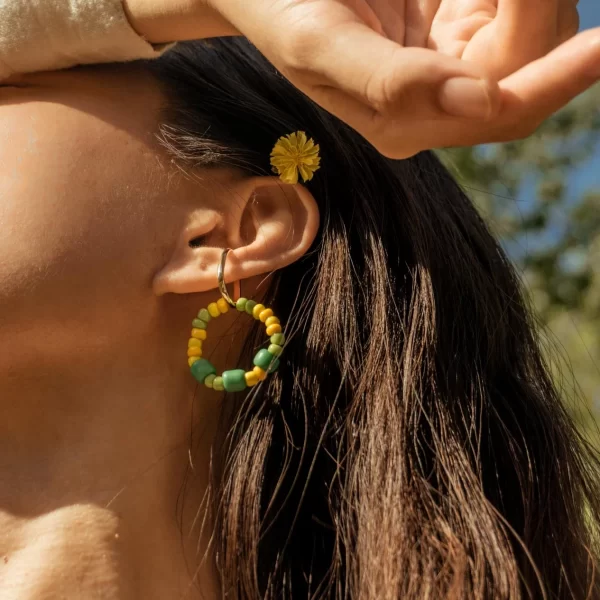
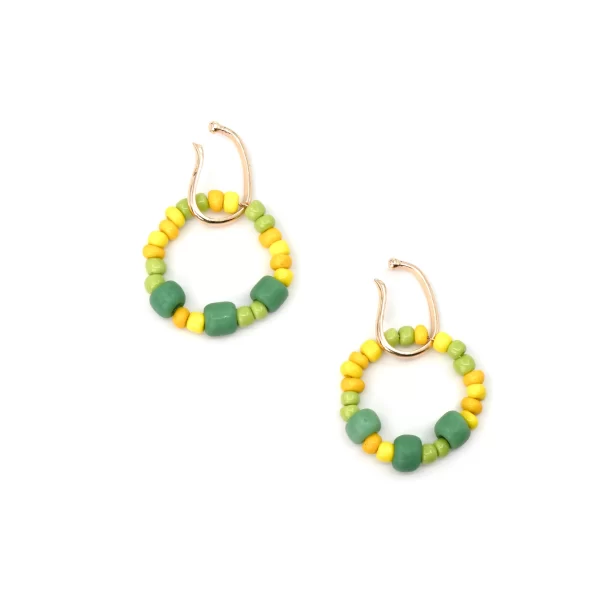 Product on saleSunflower Ear Cuffs$20.30
Product on saleSunflower Ear Cuffs$20.30 -
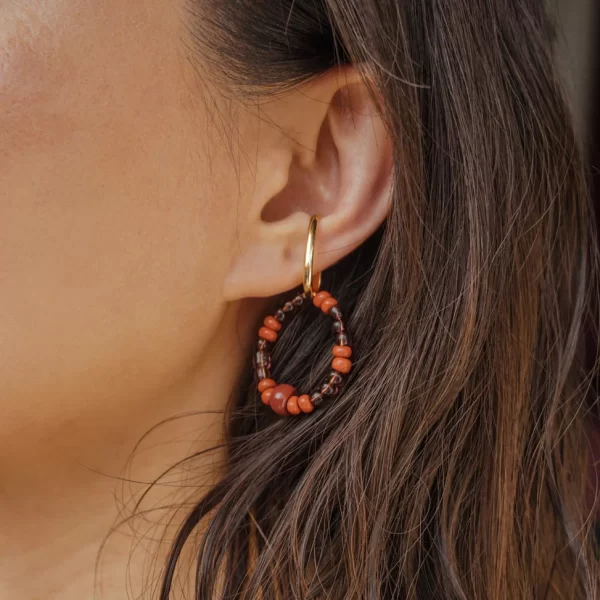
 Product on saleCoconut Ear Cuffs$25.60
Product on saleCoconut Ear Cuffs$25.60 -
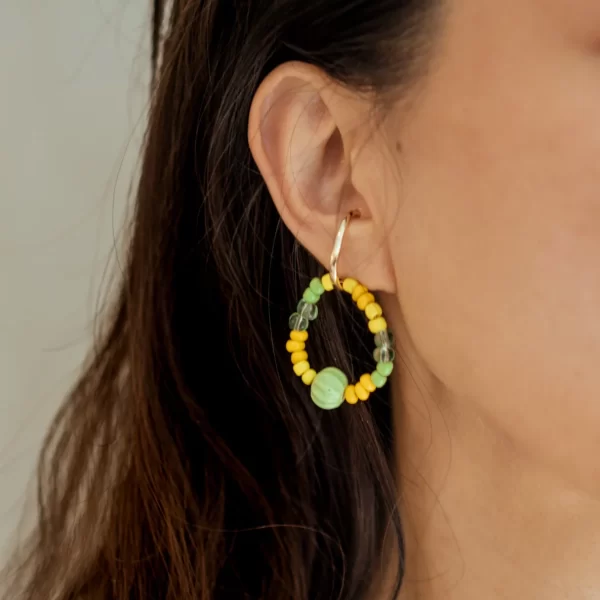
 Product on saleWild Lime Ear Cuffs$22.40
Product on saleWild Lime Ear Cuffs$22.40 -
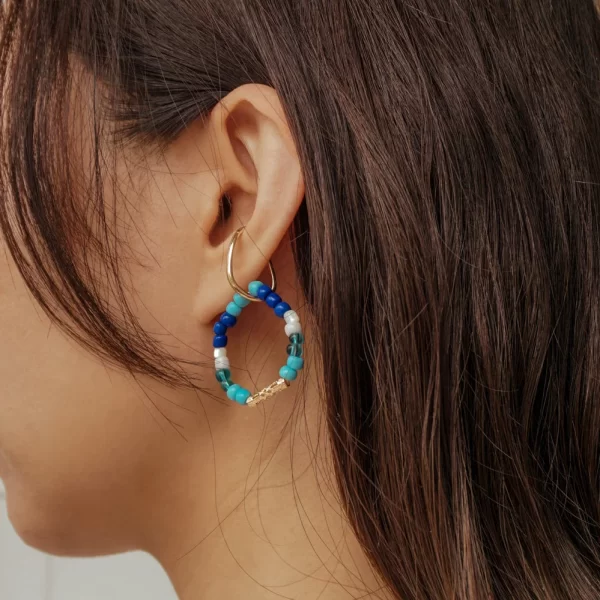
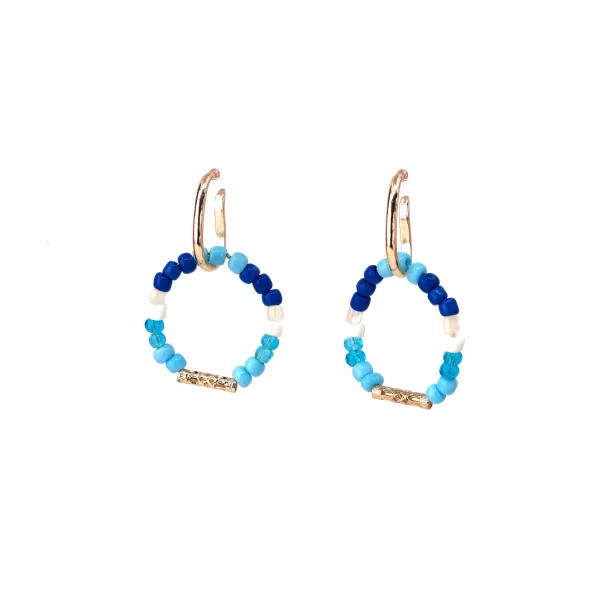 Product on saleSailing Day Ear Cuffs$22.40
Product on saleSailing Day Ear Cuffs$22.40
Sources:
- How to Sleep Comfortably With a New Ear Piercing
- How to Sleep with New Ear Piercings
- Is It OK to Sleep with Earrings In?
- How to Sleep With New Piercings on Both Ears?(Easy Guide in 2024)
- How To Sleep With New Earrings: A Guide
- HOW TO SLEEP WITH NEW PIERCINGS?
- Is it safe to wear earrings while sleeping?
- How to Sleep With Ear Piercings: 5 Tips
- HOW TO SLEEP WITH NEW EARRINGS?
- How do you sleep when you just got your ears pierced?
- How to Sleep with a New Piercing – All You Need to Know
Learn More about Jewelry Tips:
- How to Tell If Gold is Real?
- How Are Rings Resized?
- How To Get A Ring Off Swollen Finger?
- DIY Solutions for Restoring Broken Necklaces
- Re-Piercing a Former Nose Piercing
- Protecting New Piercings in the Pool or Ocean
- A Quick Guide to Inserting Hoop Earrings Smoothly
- Removing Flat Back Earrings Safely and Easily
- Why Does My New Piercing Itch? Causes and Relief
- The Complete Guide to Layering Necklaces Without Tangling
- Removing a Tragus Piercing – A Step-by-Step Guide
- Don’t Change Those New Piercings Too Soon!
- Why Does Ring Turn My Finger Green?
- How Many Piercings Can I Get at Once? Exploring the Art of Multiple Piercings
- When Can I Go Swimming After Piercing My Ears?
- Should You Wear a Rosary as a Necklace?
- 4 Most Popular Hypoallergenic Metals for Sensitive Skin in 2023
- How to Tie an Anklet: A Step-by-Step Guide
- Sleeping Comfortably With Earrings
- Spotting Fake vs Real Cartier Bracelets
- Safeguard Yourself with Meaningful Protection Bracelets
- Unlocking the Secrets: A Guide to Opening Hoop Earrings
- Identifying Genuine Chakra Healing Bracelets
- Feng Shui Guidelines for Powerful Bracelets
- Should You Wear a Copper Bracelet on Your Left or Right Wrist?
- Can You Shower With Pandora Bracelets?
